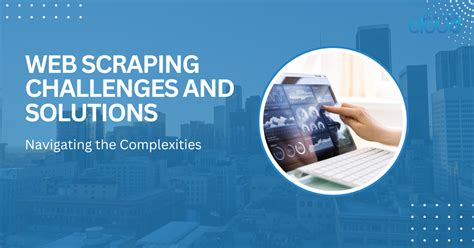Scraping data from websites—technically a simple task—ignites a complex debate over ethics, legality, and the internet’s open nature. Detractors argue scraping is often exploitative, bypassing hard-earned business protections for competitive or personal gain. On the flip side, proponents view scraping as a tool for democratizing data access, enhancing consumer choice, and driving innovation, especially in AI and machine learning.
In the digital age, data is as precious as currency, and its unrestricted flow is the lifeblood of the internet ecosystem. Yet, complications arise when this flow disrupts individuals’ efforts to monetize and protect their original content. Hence, scraping can become a disruptor, challenging traditional business models and stirring a significant ethical debate. Should the ease of access to data trump the original data owner’s consent?
Critics of unrestricted scraping, like ‘blantonl’, suggest that it trivializes the efforts of content creators. According to them, setting up complex scraping mechanisms, such as using dozens of proxy servers to mask activities, is a clear sign of intentional evasion of protective measures established by website owners. These actors often equate scraping, without respecting Terms of Service (ToS), to intellectual property theft—a sentiment that resonates with many in the digital content creation sphere.
However, perspectives differ significantly when the use of scraped content is in question. For instance, some users defend scraping as a means to archive valuable information or to provide public access to data that aids in transparency, such as in the case of monitoring for fraudulent activities or providing vital information during emergencies. Here, the ethical lines become blurred—can scraping be justified if it serves a greater good?
The legal landscape around scraping is equally murky. Various jurisdictions interpret the legality of scraping differently, and landmark cases like ‘HiQ Labs vs. LinkedIn’ have set some precedents that favor the scraper under specific conditions. Legally, much depends on the manner and intent behind the scraping, whether it’s done in a way that respects the host’s rules laid out in robots.txt, or if it veers into the realm of data theft and service disruption.
Technologically, preventing scraping is becoming increasingly difficult. Measures like IP blocking and rate limiting can often be circumvented. The evolving countermeasures and anti-countermeasures resemble an arms race between website operators and scrapers. This scenario complicates enforcement and raises questions about the efficacy and ethics of potentially intrusive anti-scraping technologies.
The debate extends beyond the technical and legal to the philosophical. How does the ethos of the internet—originally designed to be an open, decentralized network—reconcile with the commercial realities of today? Companies that once scraped data to build empires now gatekeep their own databases, citing intellectual property rights once they’ve established dominance, showcasing a stark transformation from their own origins.
In the tangled web of web scraping, the dialogue spans ethics, law, technology, and commerce. Moving forward, clear guidelines and robust discussions are needed to navigate this complex landscape. Striking a balance between open access and respect for intellectual property, between innovation and privacy, is paramount. As technology evolves, so too must our understanding and regulation of these pervasive digital practices.


Leave a Reply